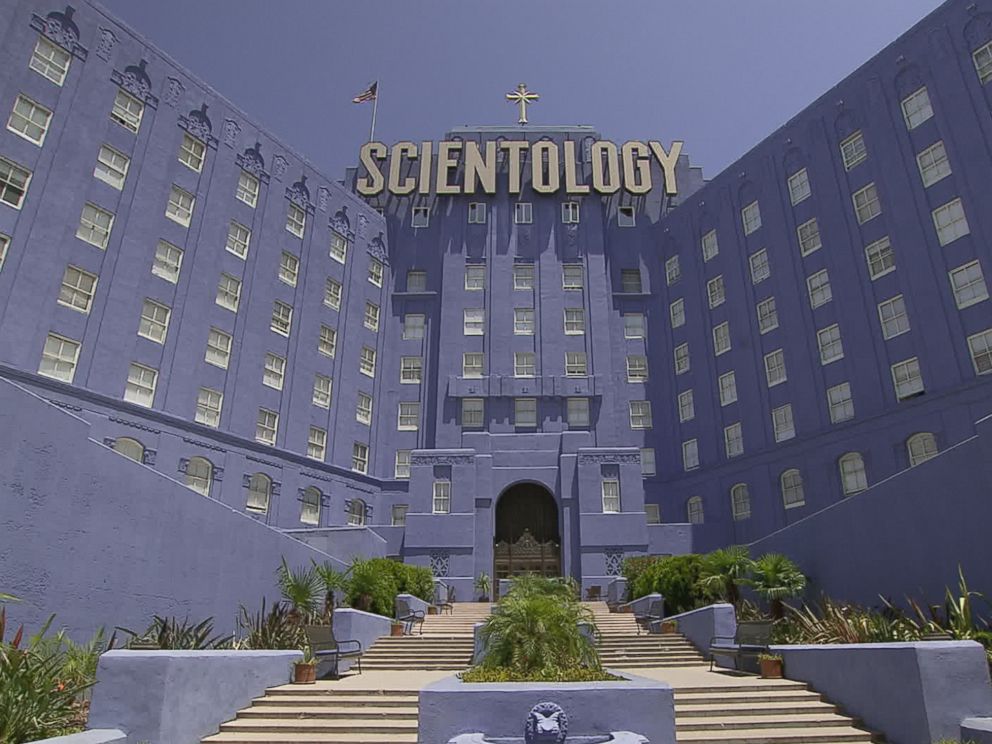What is Scientology? Exploring the Core Tenets and Basics
Wiki Article
The Reality About the Church of Scientology Revealed
The Church of Scientology has long been a topic of both fascination and controversy, with its beginnings dating back to the mid-20th century. Founded by sci-fi author L. Ron Hubbard, this religious motion has gained substantial interest for its distinct ideas and techniques. Nonetheless, past the surface degree info that lots of recognize with, there exists a much deeper and extra complex web of controversies, criticisms, and complexities that clarified the internal workings of this company. As we begin to unravel the reality regarding the Church of Scientology, a more clear image arises, exposing a story that is as intriguing as it is contentious.Beginnings and Starting
The Church of Scientology was founded in 1954 by science fiction writer L. Ron Hubbard. Hubbard originally developed a self-help system called Dianetics, which later progressed right into what is now understood as Scientology. The beginnings of Scientology trace back to Hubbard's discontentment with traditional psychotherapy techniques and his idea in the possibility for people to overcome past traumas and accomplish spiritual knowledge.Hubbard's trainings centered around the idea of thetans, never-ceasing souls offer in all individuals, and the practice of auditing, a type of therapy intended at uncovering and attending to previous injuries (Scientology Johannesburg). These concepts created the foundation of Scientology, which Hubbard defined as a religion that offered a path to self-discovery and individual development
The Church of Scientology quickly gained followers, with Hubbard establishing the initial main Church of Scientology in Los Angeles. Over the years, the organization expanded globally, attracting both devoted fans and doubters that elevated worries regarding its methods and beliefs. Despite controversies surrounding its techniques and beginnings, Scientology remains to be a substantial religious movement with a presence in numerous nations around the globe.

Beliefs and Practices
With a focus on spiritual enlightenment and individual growth, Scientology's beliefs and practices focus on attaining and discovering past traumas self-discovery with the concept of thetans and the practice of bookkeeping. Thetans, according to Scientology doctrine, are never-ceasing spiritual beings that exist within each individual. These thetans have lived via countless past lives and have accumulated adverse experiences recognized as engrams that impede spiritual development. Through a procedure called auditing, Scientologists goal to address and get rid of these engrams to attain a state of clear, free from the adverse impacts of previous injury.Auditing entails an one-on-one session in between a skilled auditor and a Scientologist. During these sessions, the auditor guides the person with a series of exercises and inquiries developed to aid them face and resolve their previous injuries. By doing so, Scientologists believe they can attain spiritual enlightenment, enhance individual development, and reach their full possibility as spiritual beings. The method of auditing is main to the beliefs and methods of Scientology, stressing self-discovery and the pursuit of a greater state of presence.
Criticisms and debates
In the middle of public scrutiny and argument, the Church of Scientology has faced a plethora of debates and criticisms regarding its practices and effect on society. One considerable factor of contention rotates around the organization's supposed economic techniques, with allegations of expensive charges for solutions and hostile fundraising methods - Scientology South Africa. Critics have likewise increased worries concerning the Church's rigorous ordered structure, which some former participants claim cultivates a society of control and adjustmentIn Addition, the Church of Scientology has actually been subject to prevalent objection for its treatment of participants, consisting of accusations of required labor, mental abuse, and the technique of interference, where participants are motivated to sever ties with family and pals important of the Church. These techniques have actually caused different legal obstacles and examinations in numerous nations, casting a shadow over the Church's credibility.
Furthermore, the Church's aggressive lawful methods against movie critics and media electrical outlets have sparked debates concerning flexibility of speech and the limitations of religious defense. These disputes have considerably shaped public assumption of the Church of Scientology and remain to fuel ongoing discussions regarding its legitimacy and effect on culture.
Management and Framework
Exactly how does the management structure of the Church of Scientology influence its procedures and decision-making processes? The Church of Scientology is recognized for its hierarchical management version, which is streamlined around the authority of its leader, presently David Miscavige.At the local degree, Scientology runs through specific churches and objectives, each with its very own set of leaders liable for supervising procedures within their corresponding website here areas. These leaders are charged with implementing the instructions stated by the central leadership while additionally dealing with the details needs of their churchgoers.
While this ordered structure can guarantee and simplify procedures adherence to the church's doctrines, it has also run the gauntlet for possible abuses of power and lack of openness. Recognizing the management and structure of the Church of Scientology is vital in understanding just how the company functions and the dynamics at play within its ranks.
Impact and Influence
What considerable results does the leadership structure of the Church of Scientology carry its participants and external stakeholders? The hierarchical management framework within the Church of Scientology exerts a profound influence on its participants and exterior stakeholders. Participants are frequently based on rigorous control and surveillance, with significant pressure to satisfy the beliefs and techniques dictated by the management. This can cause a loss of individual freedom and critical thinking skills, as individuals are expected to unquestioningly comply with the instructions established forth by the organization's leaders (Scientology South Africa).On The Surface, the Church of Scientology's management framework can have a polarizing effect on stakeholders. While some may be attracted to the organization's charming leaders and guarantees of self-improvement, others might be skeptical of the control applied over participants and the conflicts surrounding the church. This can lead to a division in public understanding, with some checking out the discover this info here organization positively and others sharing hesitation or criticism. On the whole, the management framework of the Church of Scientology plays a considerable function fit the experiences and understandings of both members and external stakeholders.
Conclusion

The Church of Scientology swiftly got followers, with Hubbard establishing the initial main Church of Scientology in Los Angeles.In the middle of public scrutiny and debate, the Church of Scientology has actually encountered a wide range of objections and site controversies concerning its techniques and impact on culture.What substantial effects does the management framework of the Church of Scientology have on its members and exterior stakeholders? The hierarchical leadership framework within the Church of Scientology exerts a profound impact on its members and external stakeholders. Overall, the management framework of the Church of Scientology plays a substantial duty in forming the experiences and perceptions of both members and external stakeholders.
Report this wiki page